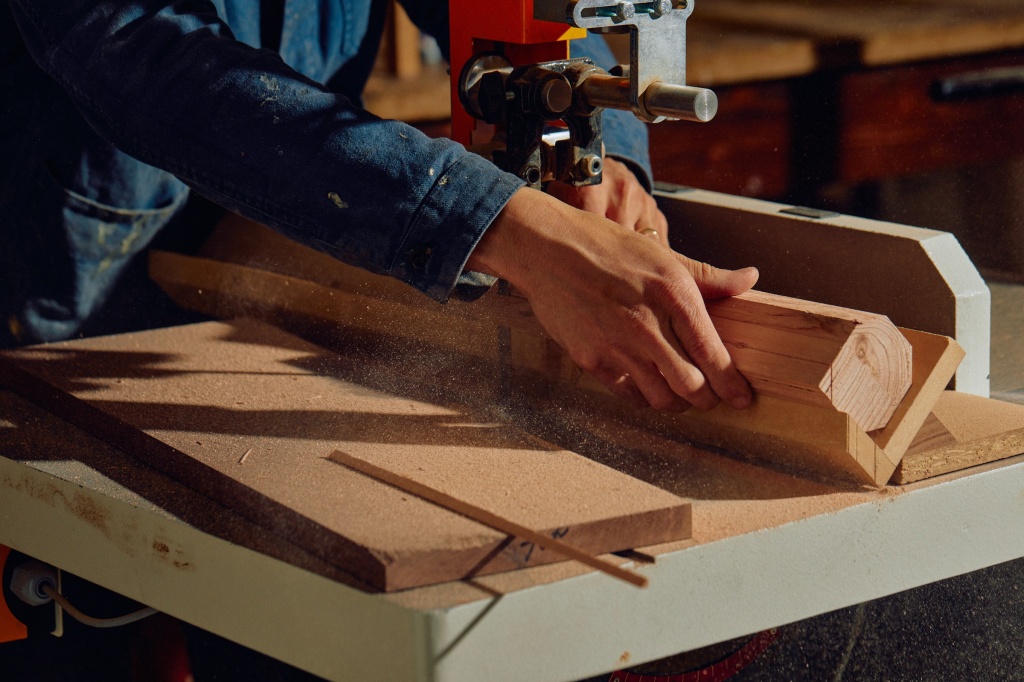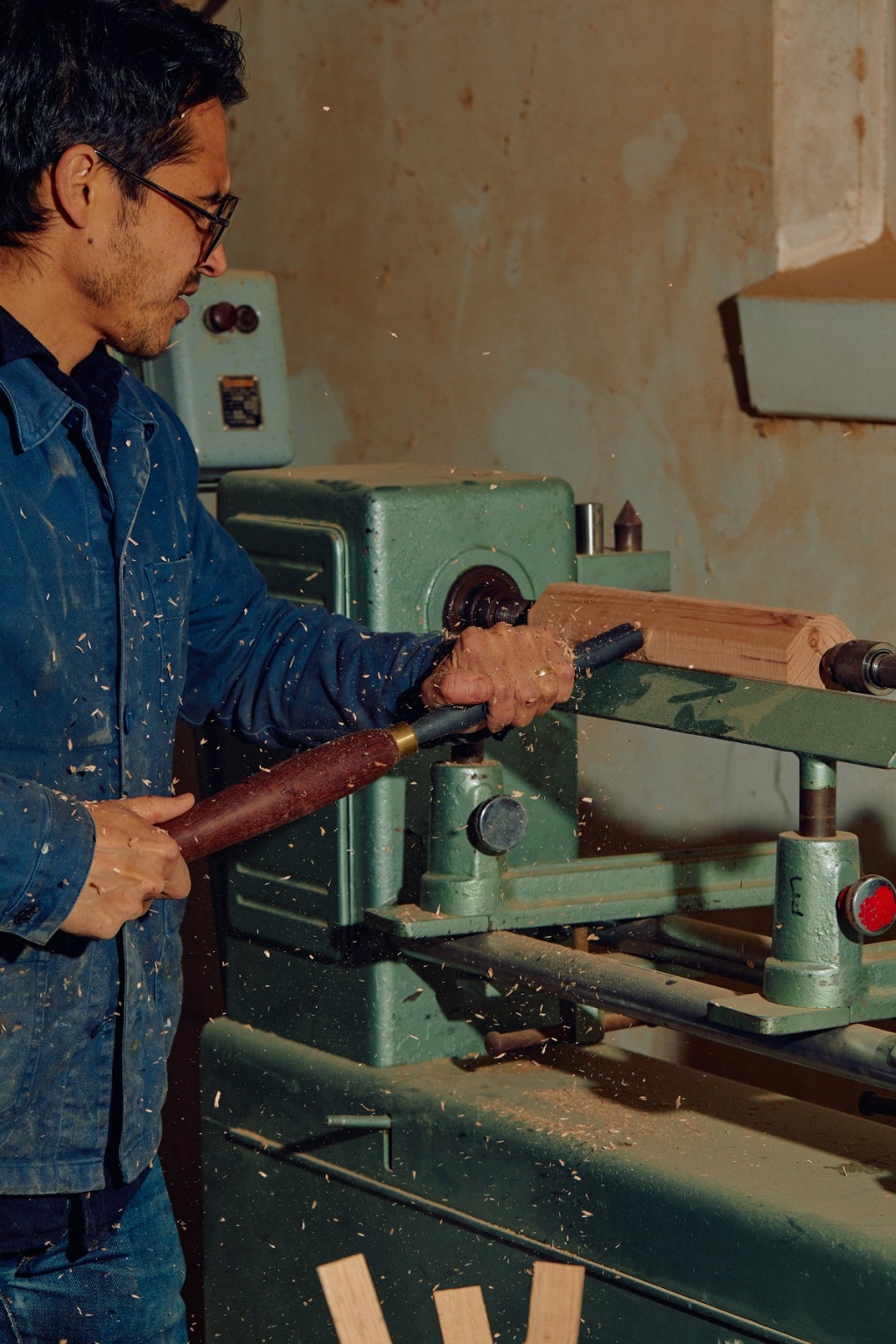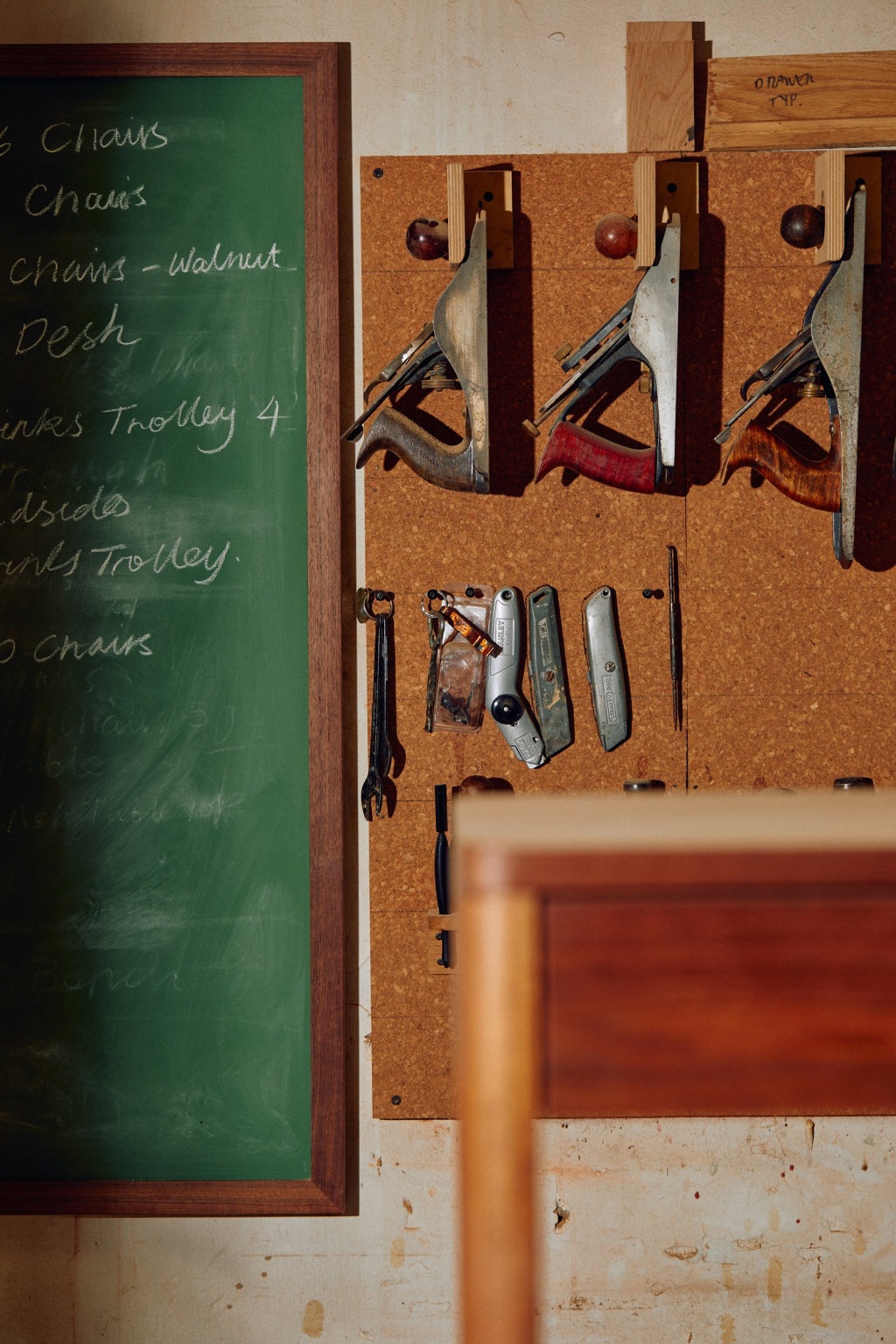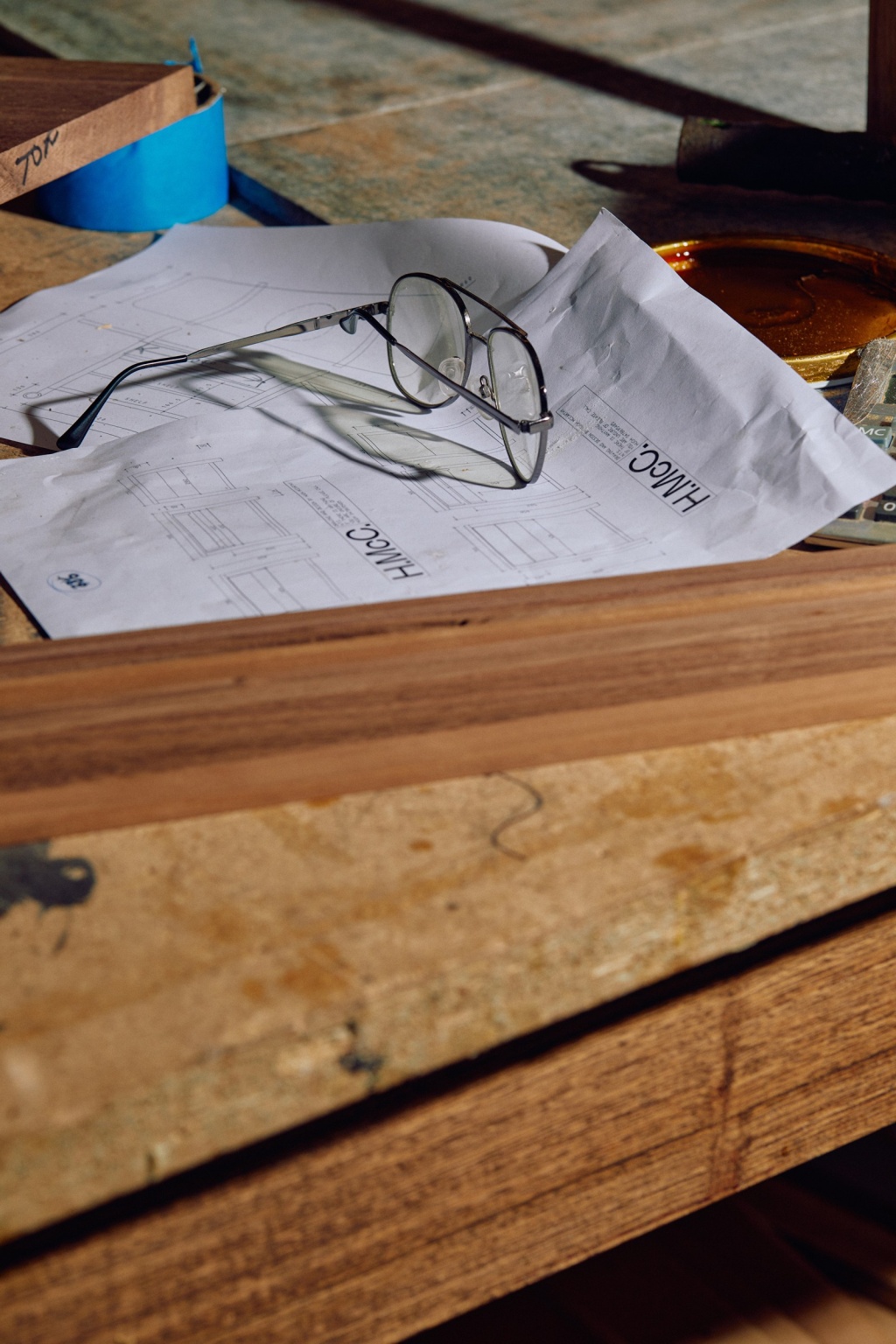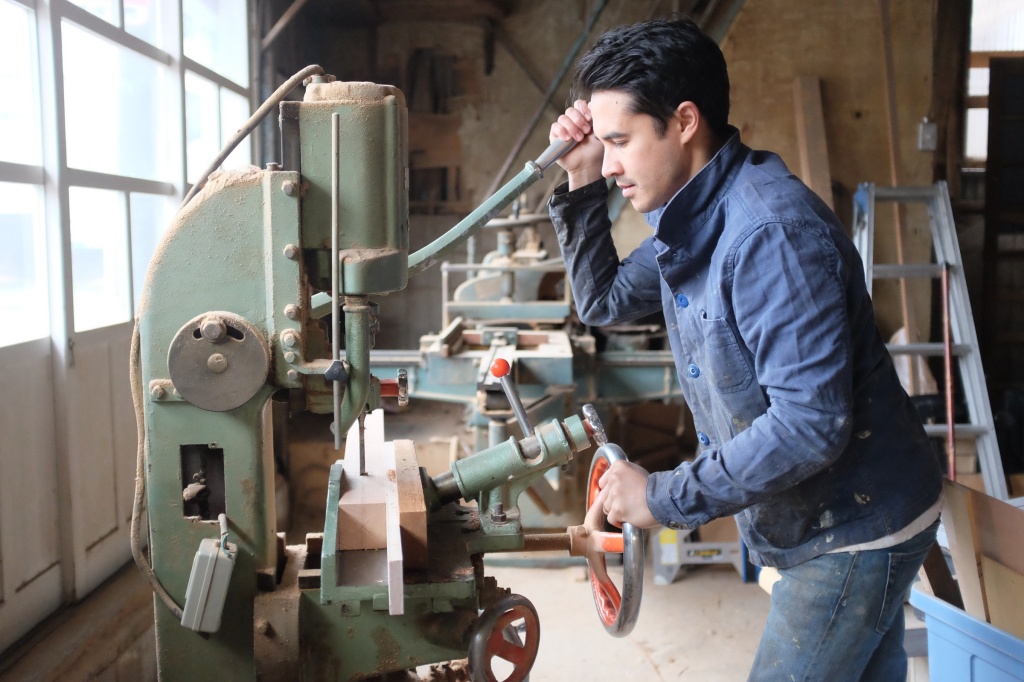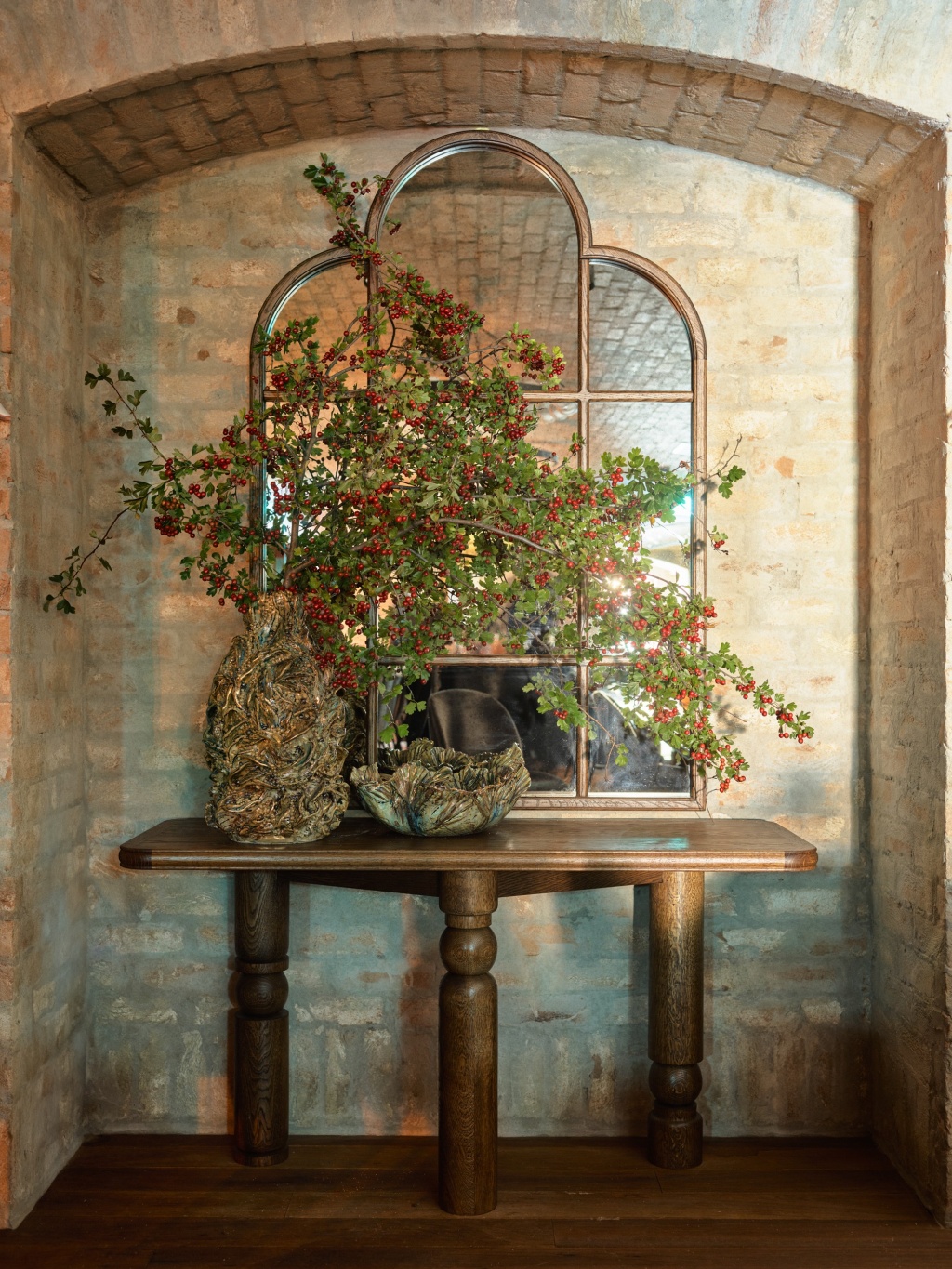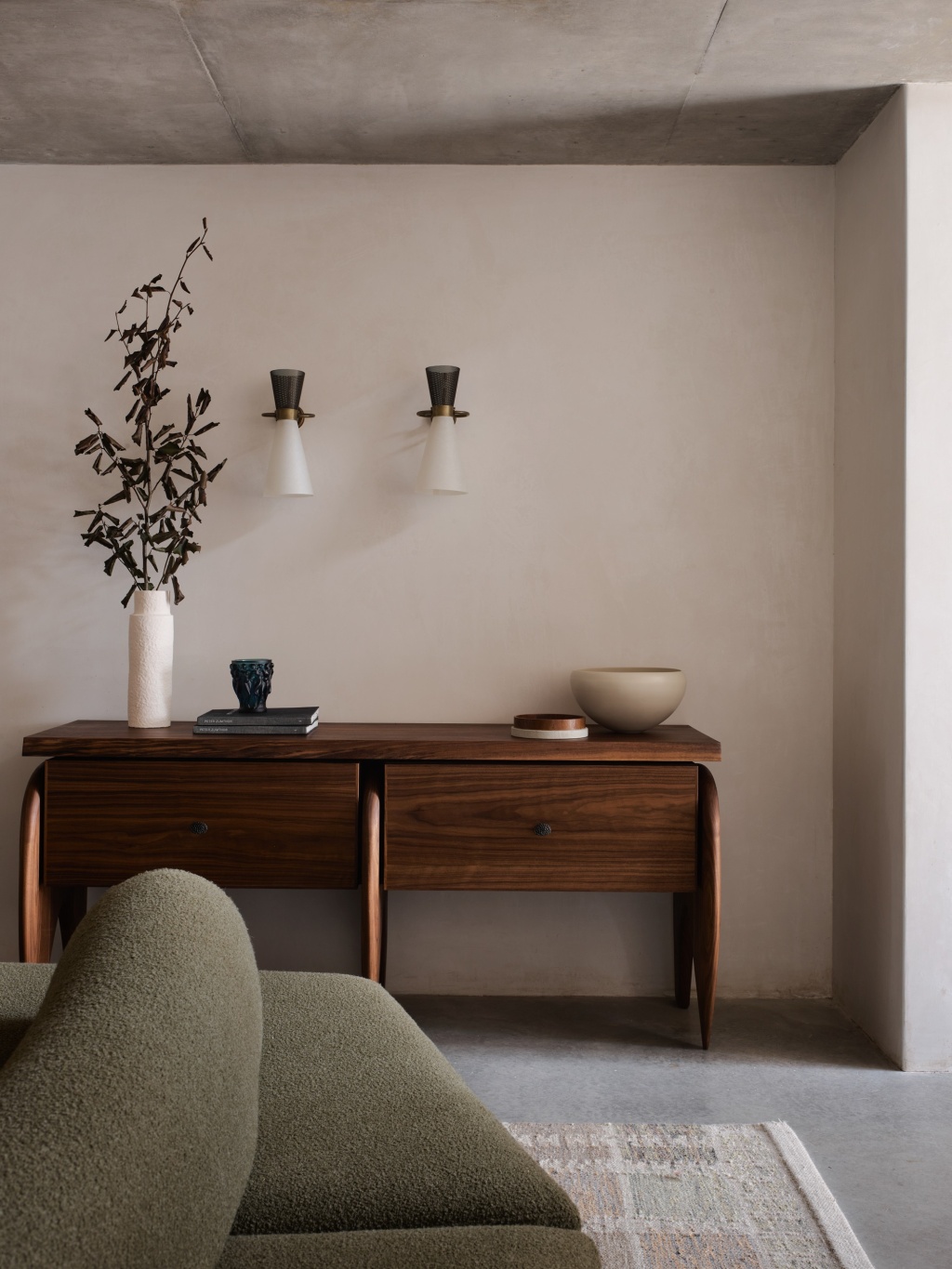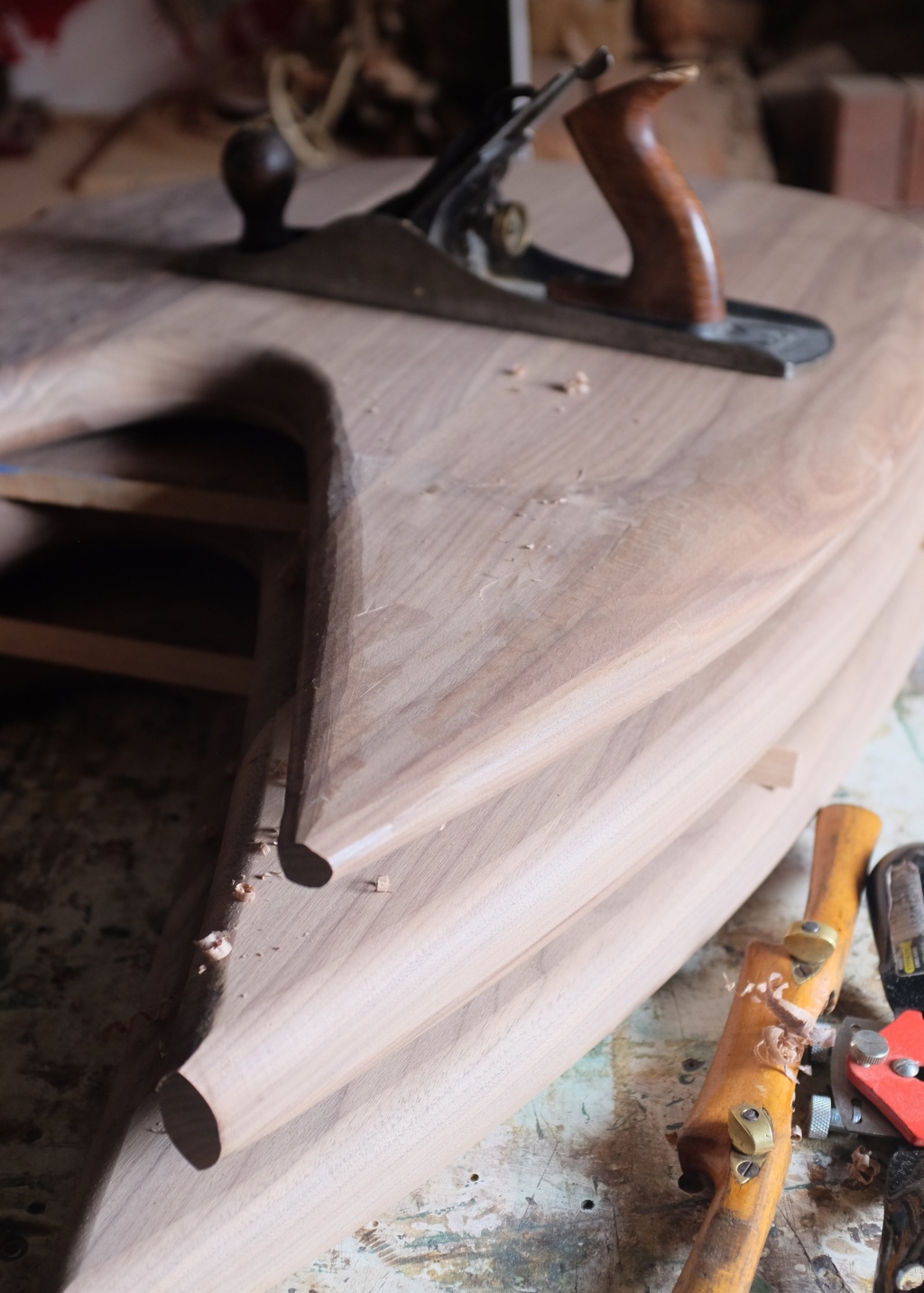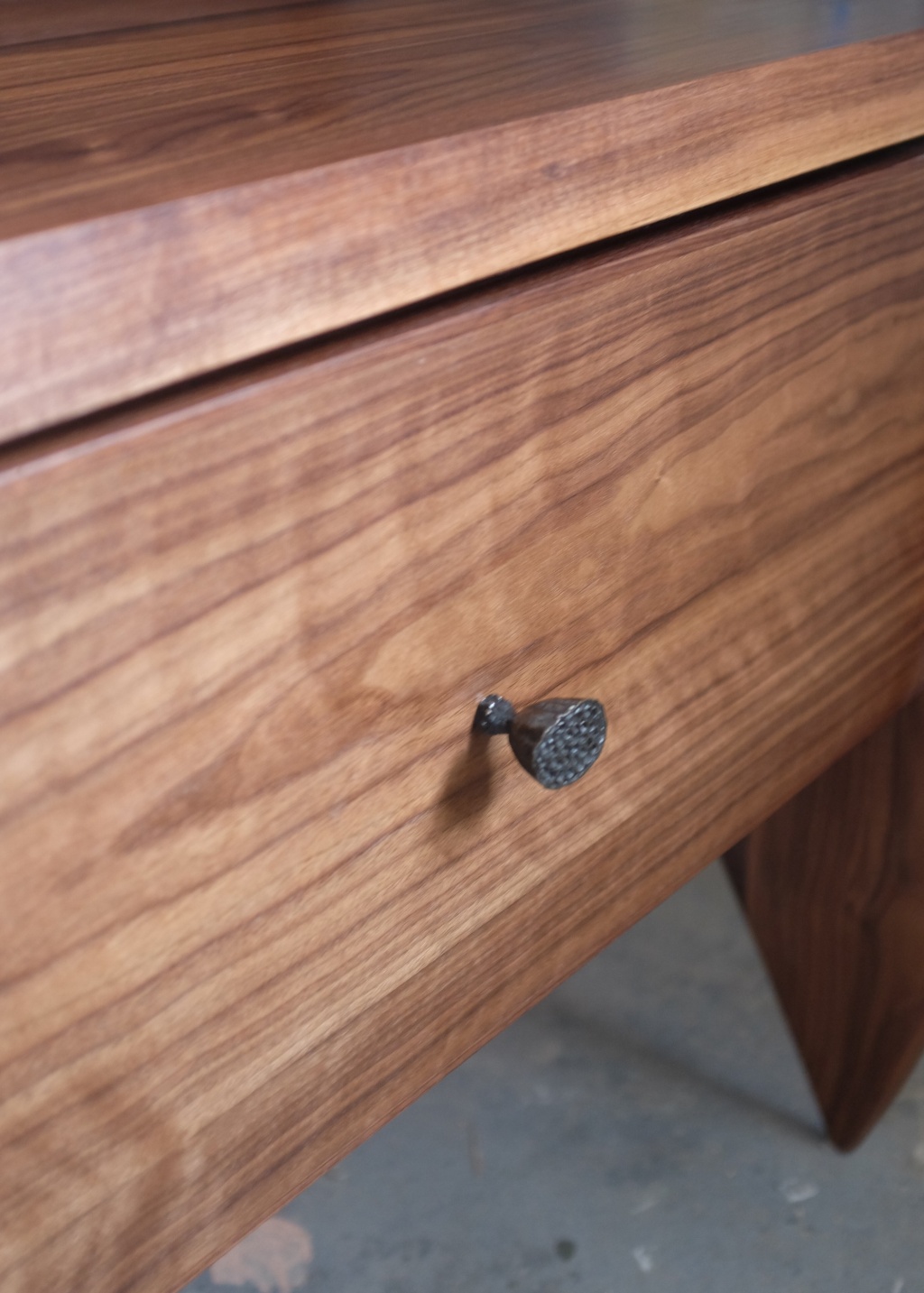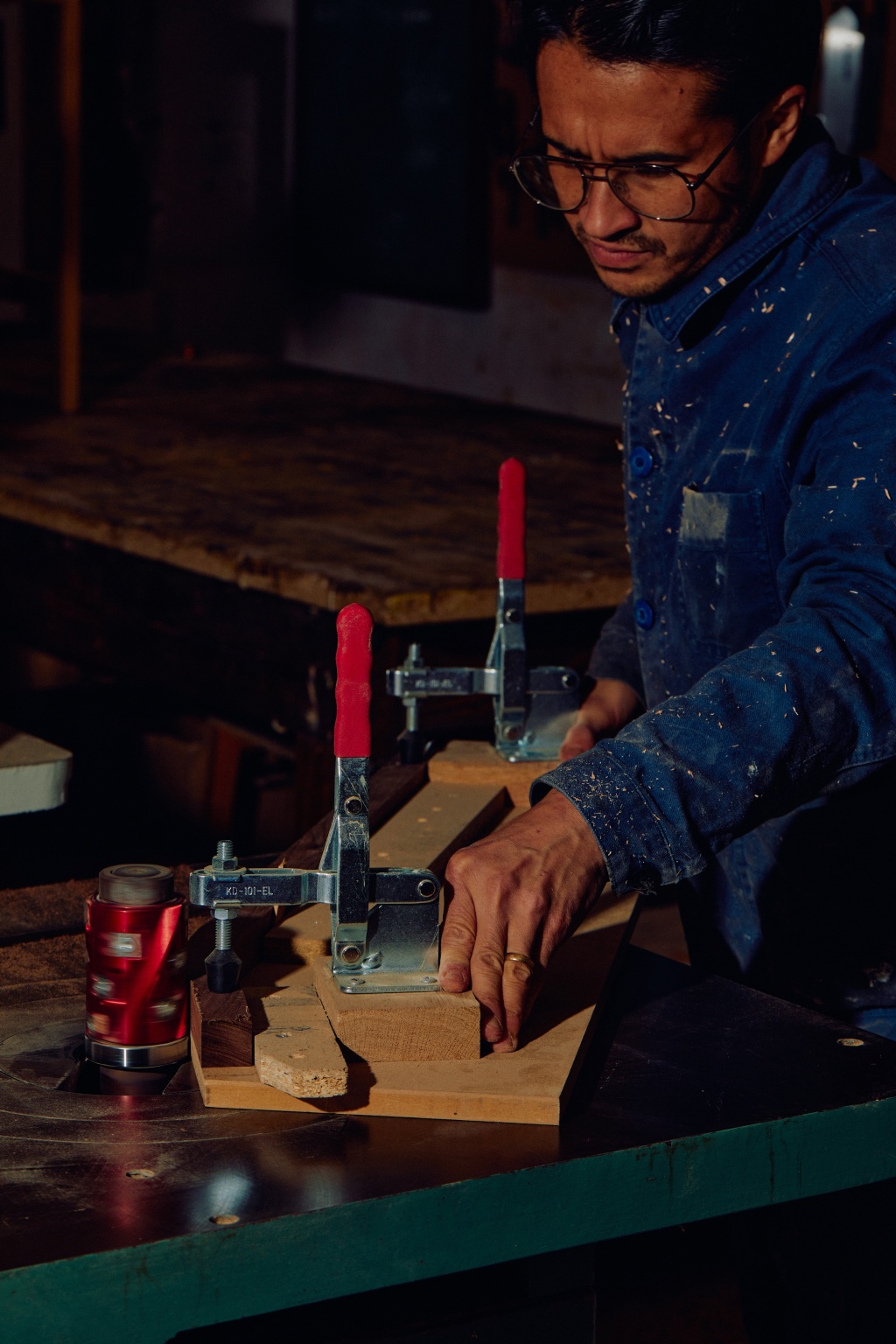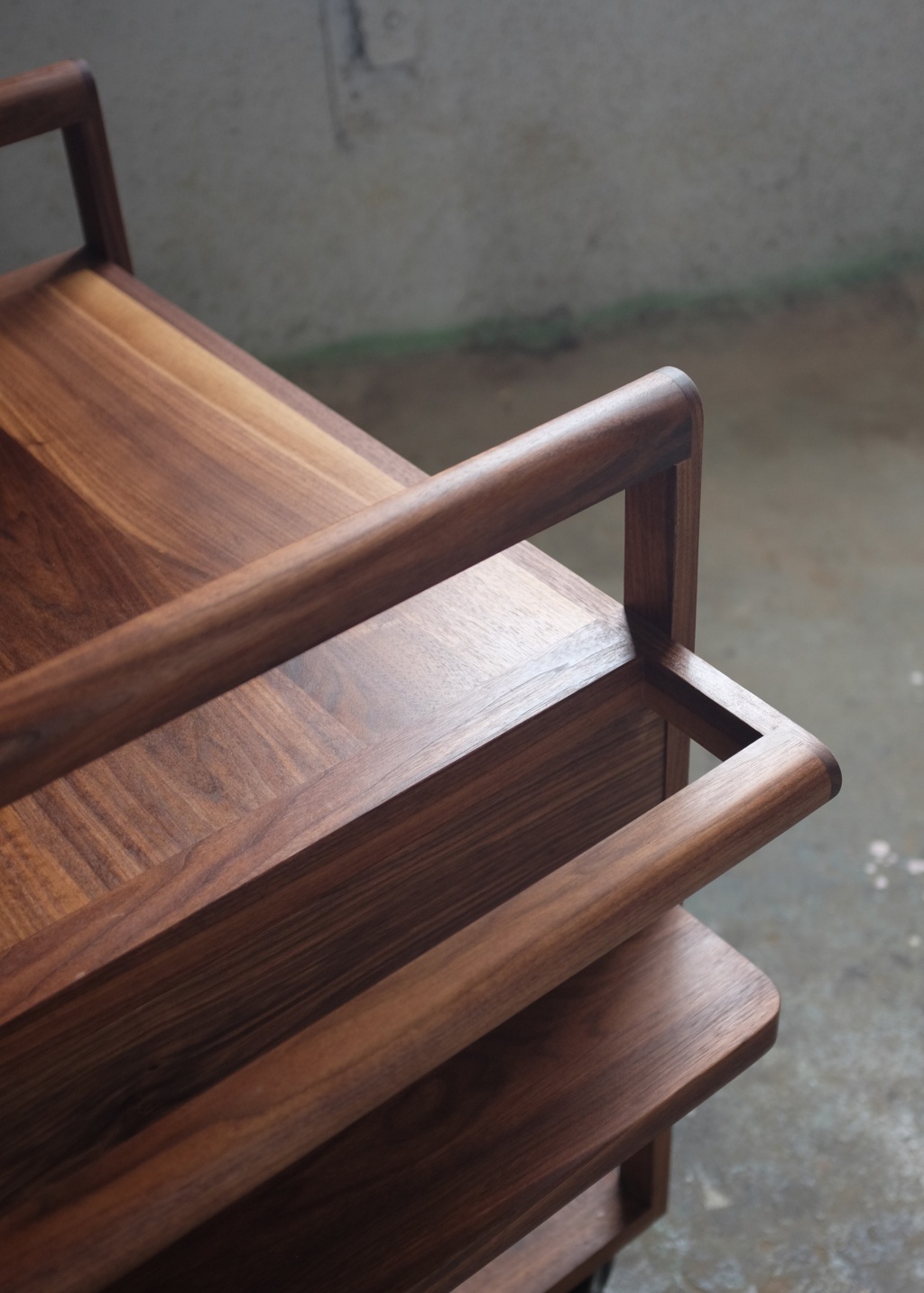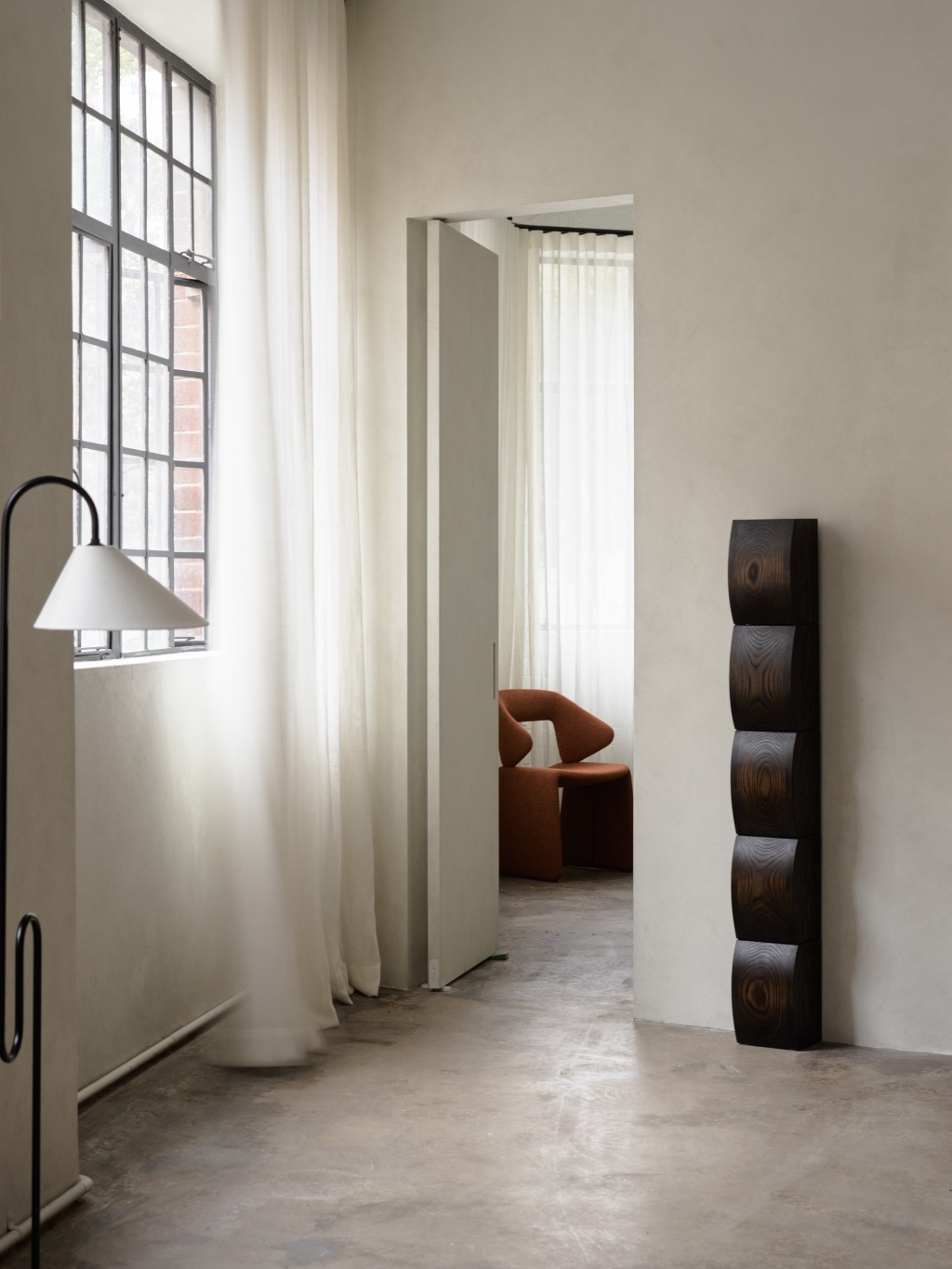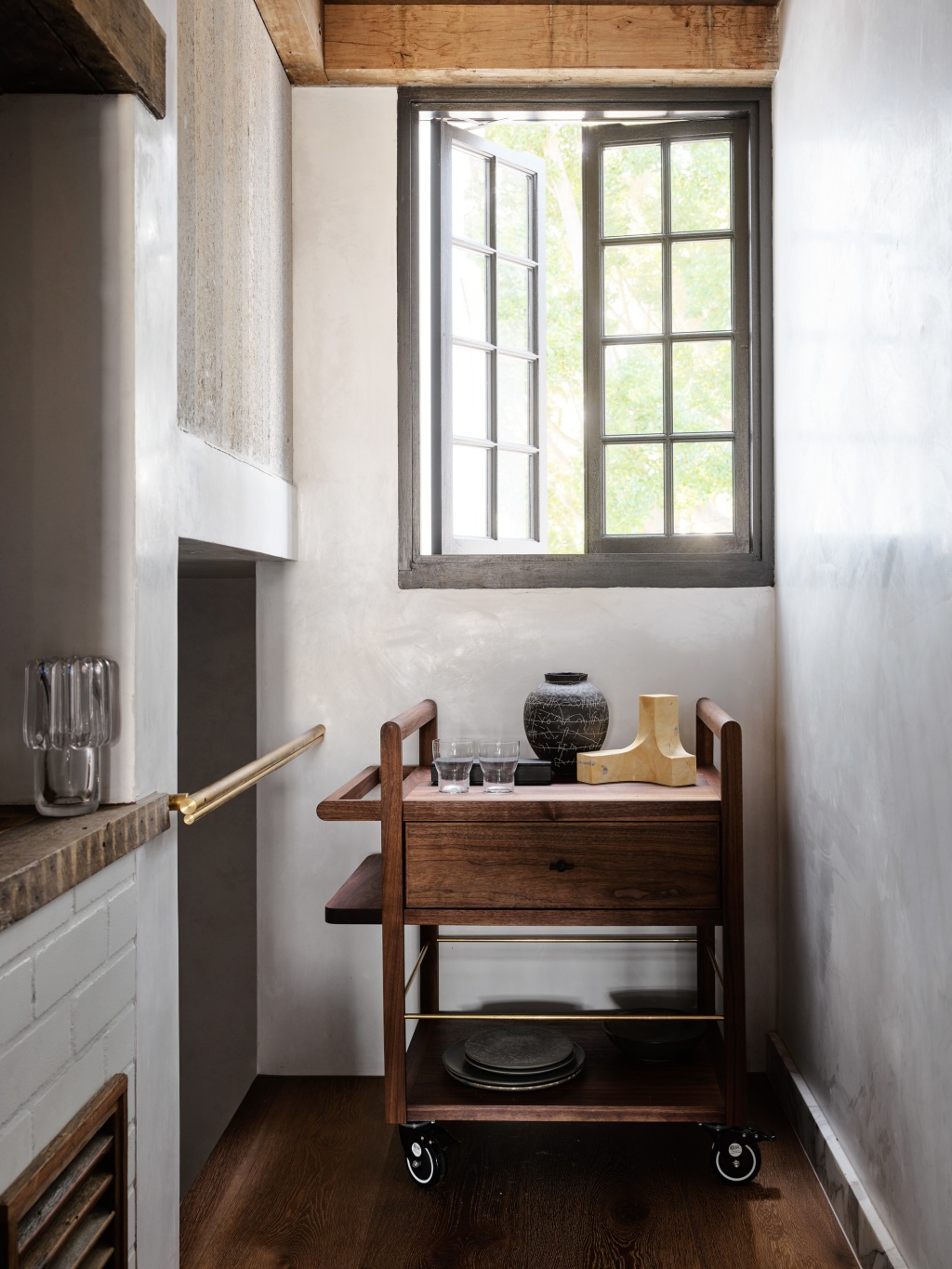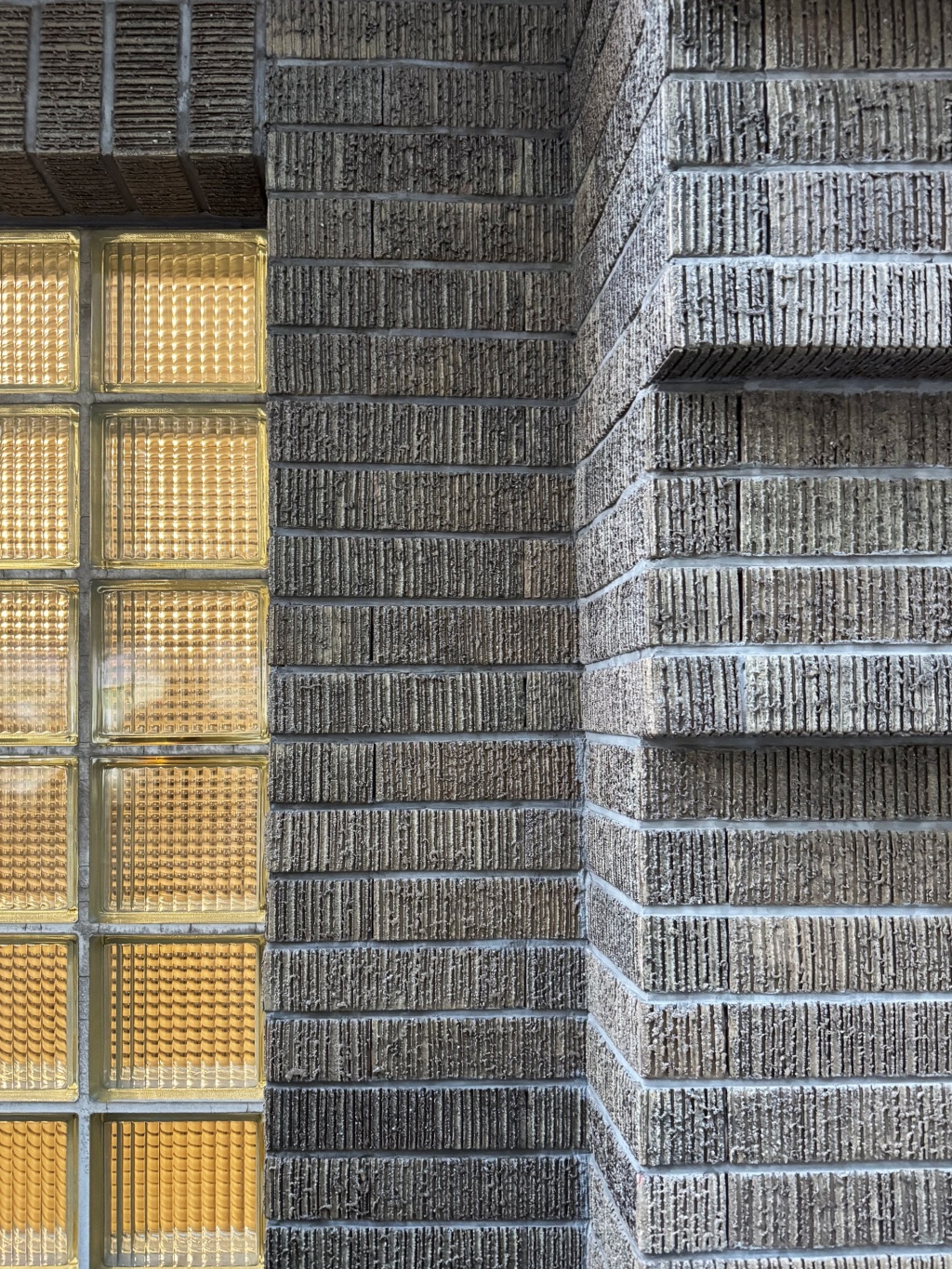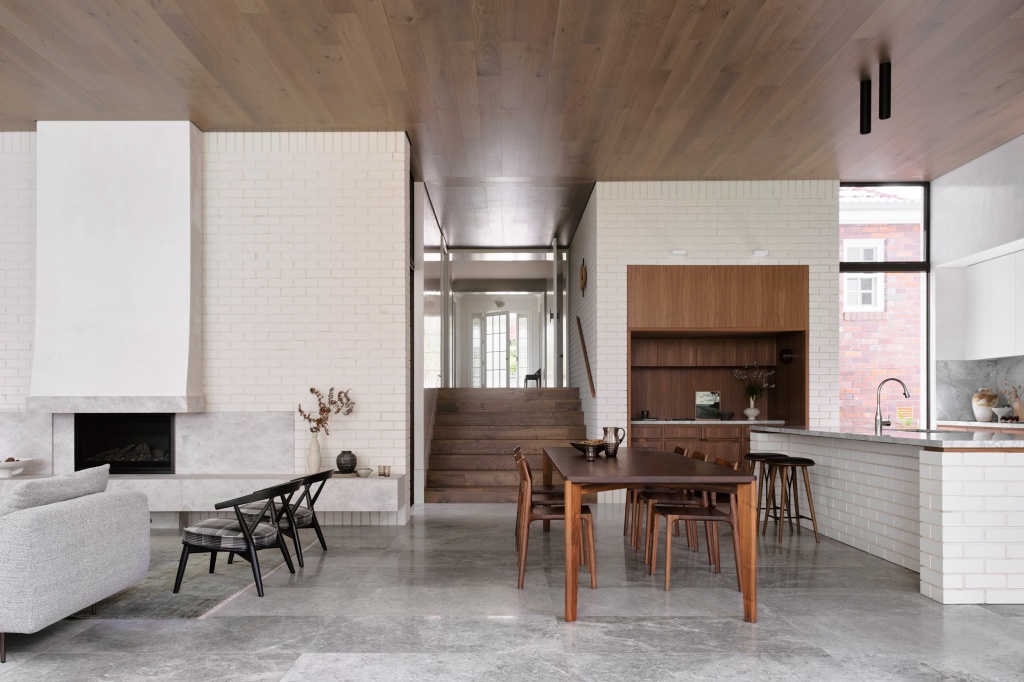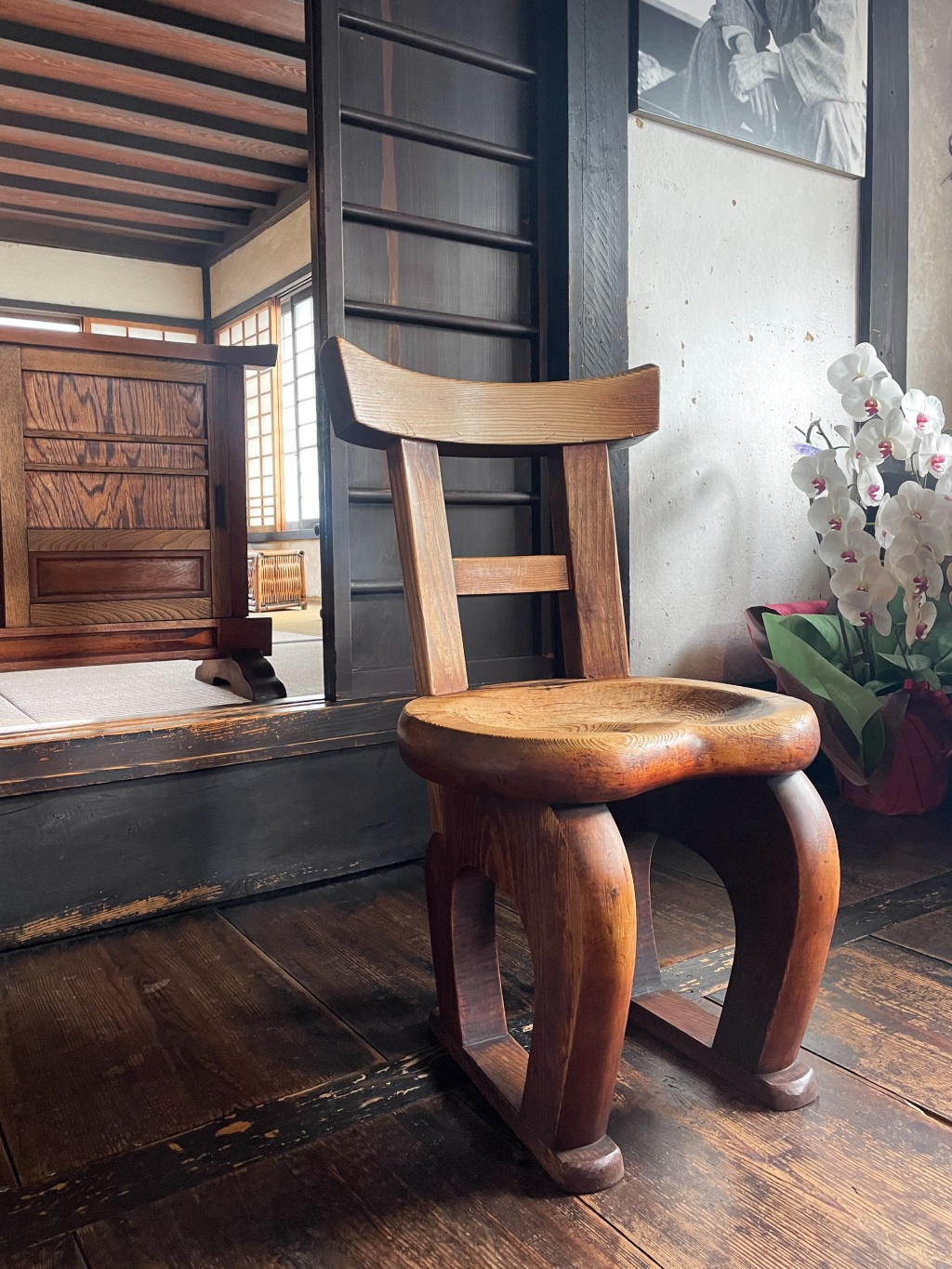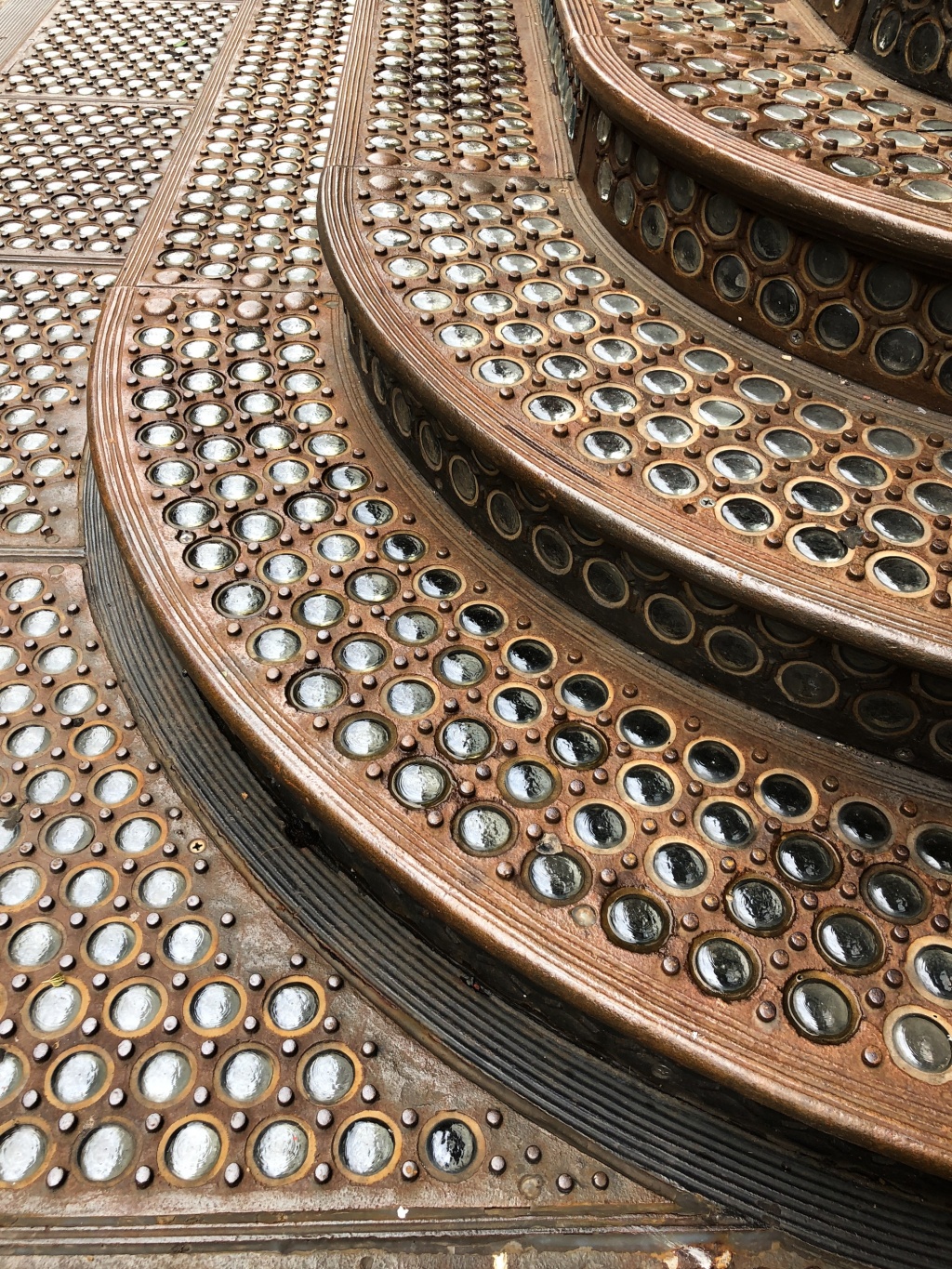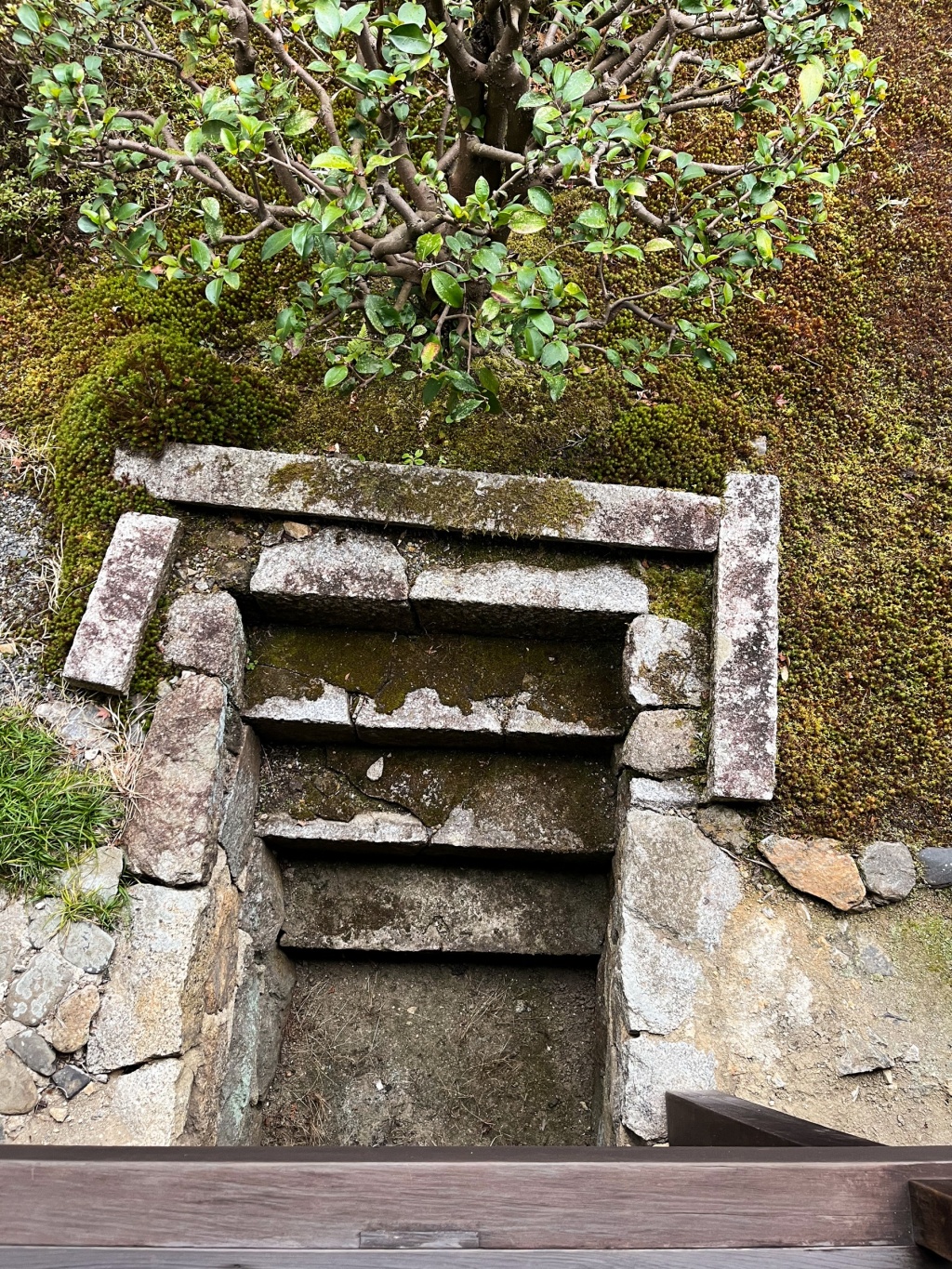Story of Origin & Hugh McCarthy
AMPERSAND
Reading: Story of Origin & Hugh McCarthy
Our Story of Origin series is a behind the scenes chat with some of the people that have shaped the history and projects of our Practice.
In this instalment we welcome furniture designer and maker Hugh McCarthy to share his story.
We first met Hugh about 10 years ago, very early on in his furniture business and have since woven his bespoke furniture pieces and sculptures into many of our projects.
Here Principal Jeremy Bull [JB] chats with Hugh [HMcC] about his journey from landscape architecture to refining his craft as a maker.
[JB]
A lot of people's Story of Origin isn't necessarily directly connected to what they're doing in their current art form. People often assume that it was really well planned and methodological…
[HMcC]
Yeah, it wasn't for me at all. At school I was really into drawing and art, and I've always followed that, but I went straight into landscape architecture.
[JB]
Landscape?
[HMcC]
Yeah. Being young, you're just going to university open days and you're following the crowd a little bit more. I was interested in gaining the skills to be able to create public parks and environments that a lot of people would get to enjoy.
[JB]
And did you think about it because you liked the design component, or you liked the physical component of making the landscape itself?
[HMcC]
I think it was more the design and I couldn't see a path forward as being, say, an artist. I had a huge interest in graphic design as well. But I think when you go into university, you think that by ticking all the boxes, you will end up choosing something creative and very practical.
[JB]
Did you go to work as a landscape architect?
[HMcC]
Yeah, three years but it was not for me.
[JB]
What was it that you discovered that was not working for you?
[HMcC]
Being in an office. Landscape projects can take years and much of the day-to-day is spent preparing drawings. I struggled to find the satisfaction in the work.
[JB]
Three years into landscape architecture and realising that it wasn't for you, was that a crisis or a slow die out? Or was it like, "...what have I done?"
[HMcC]
There's definitely that moment you're like, "God, I've got a HECS debt. I should be working in this industry. What's wrong with me? I should stick it out, see if I can make it work.” But over time, I recognised there were parts of my personality that could not be aligned with the work I was doing. The people I most admired professionally, I realised, were the people who made things for a living, working with their hands, such as chefs, sculptors, carpenters.
[JB]
Was there a point? Was there a Thursday night around the dining table, “I've made my decision” kind of point? What happened?
[HMcC]
It was around the big global recession in 2008 and a few of us lost our jobs so I decided it was a good chance to try something else for a year. To be honest, I wasn't the most enthusiastic person in that environment either.
[JB]
So 16 years ago you were a young bloke three years into your first graduate job, having a reckoning; “I'm not the most enthusiastic bloke in the room. This is maybe not for me”. And then the global recession gives you a gift.
[HMcC]
Yeah, you’ve got to look at it as a gift in a way.
[JB]
What happened at that point?
[HMcC]
Three of my friends, also landscape architects, started a restaurant called The Commons in Sydney. They needed tables and seats and off chance they introduced me to the people who were making the furniture. I had very little experience, but I asked if they needed an extra set of hands on the tools.
[JB]
You make that all sound like it was super easy and straightforward, but I'm guessing you pondered that decision for a minute?
[HMcC]
Furniture making seemed so specialised that it didn't seem viable. I thought if you want to work on the tools, you have to be on a construction site. I was naive about that. I definitely couldn't see myself running a furniture making business like I have now.
[JB]
And no history of furniture before this point? Any interest?
[HMcC]
No. Not in the slightest on my radar. I don't even think I had made anything. Maybe a chopping board or something.
[JB]
That’s wild. And they gave you a job?
[HMcC]
Yes, it was an Italian father-son business in Melbourne. And the old man, he's a master craftsman. To this day, he's probably the only person I could call a master craftsperson.
A lot of people want to use craft to brand their business. But this guy, his knowledge of antique restoration and all that sort of stuff, it was next level. He's still around. He's probably like 90 or something and in Melbourne, if you wanted an antique restored, he was the guy to go to.
There are not many antique dealers anymore, so it felt like the end of an era. His son had taken over the workshop and was moving more into fitouts and I was lucky that he just had a couple of big hospitality projects he needed help with.
A lot of people want to use craft to brand their business. But this guy, his knowledge of antique restoration and all that sort of stuff, it was next level. He's still around. He's probably like 90 or something and in Melbourne, if you wanted an antique restored, he was the guy to go to.
There are not many antique dealers anymore, so it felt like the end of an era. His son had taken over the workshop and was moving more into fitouts and I was lucky that he just had a couple of big hospitality projects he needed help with.
[JB]
Are you sanding or sweeping floors or what are you doing?
[HMcC]
A bit of both, everyday stuff. And I absolutely loved it. I think he just saw that I was really enthusiastic and good for team morale, so kept me on. There was never a textbook or anything. He's just like, "You'll figure it out, seriously. Here's the drill." Everything was learnt on the job.
There was also an excellent team of people there. And I remember thinking to myself how skilled these guys are. The way they would problem solve and come up with jigs to manufacture wood joints was nothing like I had seen before. That sort of stuff is really interesting to me, and I care about it.
There was also an excellent team of people there. And I remember thinking to myself how skilled these guys are. The way they would problem solve and come up with jigs to manufacture wood joints was nothing like I had seen before. That sort of stuff is really interesting to me, and I care about it.
[JB]
You've been in a space where you were, in your words, not the most enthusiastic bloke in the room. And then you came to this, and you just said you were blown away by these guys' skills. Was there a moment where you were like, "there's been a shift inside me from place one to place two?"
[HMcC]
Yeah. The main shift was that I was enjoying woodwork. It was physical and practical, but it was also really creative because we would be designing, prototyping and detailing things in an intuitive way. Proportion, for instance, is very hard to get right off a drawing.
So that's how I ended up just doing it. And I worked there for three or four years, I think, and then I worked with a furniture and cabinet maker in Japan who inspired me to become self-employed.
So that's how I ended up just doing it. And I worked there for three or four years, I think, and then I worked with a furniture and cabinet maker in Japan who inspired me to become self-employed.
[JB]
How long have you been running your own business for?
[HMcC]
A bit over 10 years.
[JB]
Well, I remember when you approached us, we were in Great Buckingham Street in Redfern. You brought in a breadboard, I think from memory or a piece of wood… It would've been maybe seven years ago or longer…You would've come and seen us very early within your business?
[HMcC]
Yeah, I think so. It’s probably the only form of marketing I know. Just working with you guys and meeting other people in person was key to developing a business early on.
[JB]
If you were to go back in time, was there a point where you'd love to have given yourself different advice, all with the benefit of hindsight of course!?
[HMcC]
I’d say to myself, take your passions seriously. They are real. Enthusiasm cannot be faked. I used to prioritise the more sensible business path while treating the 'art making stuff' as risky. At the moment, I'm doing a lot of artwork and loving it. It’s a good idea to trust that you're also an artist and not…
[JB]
A hobbyist.
[HMcC]
Exactly or laugh it off as being just this trivial interest you do on the side. Treat it as seriously as anything else, because whenever I've done that, it's always worked out well for me.
And the minute I've tried to be business-y or fit in and listen to people saying, "You need to expand…" It just goes downhill fast. I end up rushing work and putting out furniture that is not at the level of quality I’m happy with. Work at your own pace would be the answer to that question. And maybe don’t study Landscape Architecture…
And the minute I've tried to be business-y or fit in and listen to people saying, "You need to expand…" It just goes downhill fast. I end up rushing work and putting out furniture that is not at the level of quality I’m happy with. Work at your own pace would be the answer to that question. And maybe don’t study Landscape Architecture…
[JB]
You might not be where you are now if you hadn't done it.
[HMcC]
True. I learned a lot from that course, and I talk with designers all the time, so it’s been a great foundation for being able to articulate ideas. Landscape Architects are amazing!
[JB]
I listened to a quote by Bjarke Ingels, a big architectural icon these days. He said, whenever they made business decisions, the architecture suffered. Whenever they made architectural decisions, the business thrived. That reminded me of what you were saying, like making decisions for the benefit of the art and then the rest gets in line.
[HMcC]
I agree 100%. Hopefully business does thrive when we try to be authentic rather than trying to please everyone.
Learn more about Hugh McCarthy

